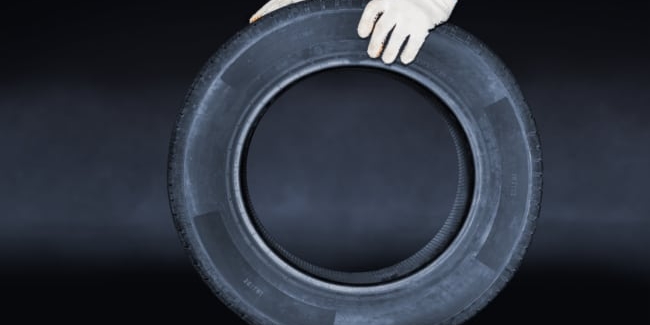News / Blog
Forklift Tyres
Press-on Vs. Solid Pneumatic Tyres
(Why it Matters)

Forklifts are amazing items of machinery that allow for massively heavy loads to be safely and quickly transported in warehouses, and outdoor areas and in a wide variety of other locations.
It's specifically because forklifts are so versatile and are frequently driven over many different types of surfaces, that several types of forklift tyres exist, each having its particular unique benefits and preferable use.
Here is a quick overview of the differences between press on and solid pneumatic forklift tyres, and how each is best suited to your individual circumstances and applications.
Press-on Tyres
Solid press-on tyres have unique benefits that make them especially rugged, resilient, and capable of handling heavy loads.
These tyres feature a metal band that is bonded onto the rim base of the tyre. Not only does this make these tyres incredibly strong and hard-wearing, but it also allows them to handle loads significantly greater than those which could be handled using other types.
Press-on tyres generally have the longest operating life of any industrial tyre product, specifically because they are so durable, robust, and hard-wearing.
There are however a couple of downsides to press-on tyres, including:
- They can lead to a severely degraded ride quality, which could cause significant issues for the driver of the forklift and could, potentially, result in injury.
- Not all forklifts will be properly equipped to take press-on tyres and converting them to do so can be costly.
Solid Pneumatic Tyres
Pneumatic tyres are essentially air-containing tyres, although there are now "solid" versions available that are significantly more rugged than conventional and historical air tyres.
There are unique benefits to pneumatic tyres, including the fact that these tyres benefit from vastly superior ride quality to press-on tyres -- and this, therefore, makes them much more comfortable for forklift drivers, and can enhance driver safety.
These tyres can be used for both indoor and outdoor applications and are typically easier to fit onto your existing forklifts than with press-on tyres.
The downside of these types of tyres are the risk of puncture, due to the fact they can't handle the heaviest of loads, and that they are more susceptible to damage overall.
What Should You Consider Getting?
The type of tyre that you should get for your forklift will depend entirely on your individual circumstances i.e. surfaces you regularly drive over, the loads you transport, what your current forklifts are equipped with to handle etc.
Each forklift tyre type will be better suited to certain circumstances, contexts, environments, and working conditions -- and it’s important to weigh up the pros and cons of each type when determining which tyre type will be right for you.
Understanding these different forklift tyres will equip you to make the appropriate decision that benefits you, your business, and your forklift drivers to the greatest possible extent.
Final Thoughts
How would a fast turnaround with British made forklift products improve your forklift?
Click here to find out how Pumacas is at the top of the game with British made products.
Complete industrial wheel solutions - all in one place
For more information, get in touch today on 0121 448 4900. Alternatively, to request a call-back - fill out the contact form below.